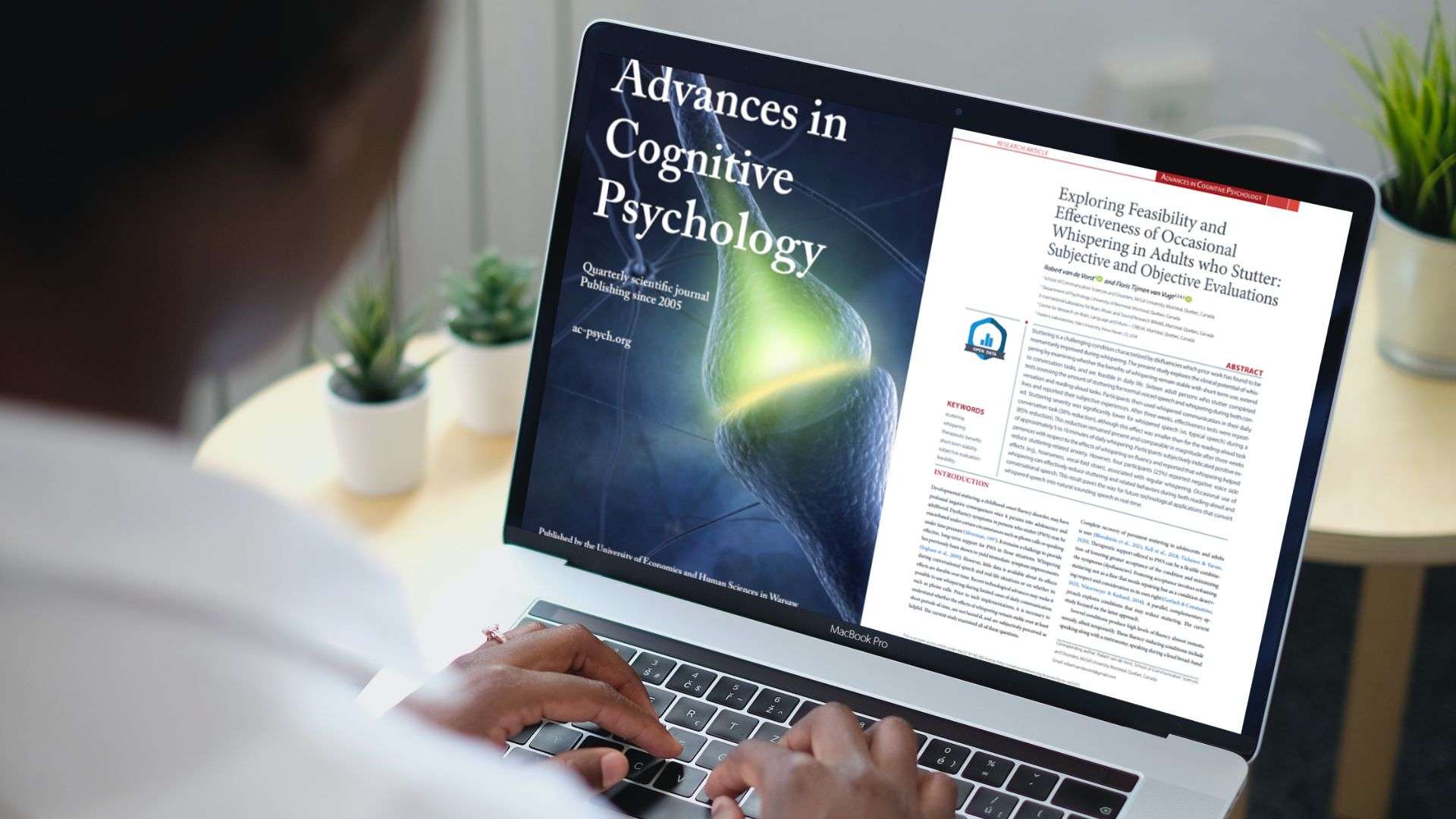Whispp secures €2.5 million through EIC Accelerator
Whispp's Real-Time On-Device Voice Reconstruction AI selected for Europe's EIC Accelerator!The EIC...

Researchers have long sought ways to improve stuttering, and prior work has suggested that whispering can provide momentary relief. However, little was known about the long-term benefits of whispering, its feasibility in daily life, and whether it could be used in conversation tasks.
The study, “Exploring Feasibility and Effectiveness of Occasional Whispering in Adults who Stutter: Subjective and Objective Evaluations ” by Robert van de Vorst and Floris Tijmen van Vugt, published in the Journal of Advances in Cognitive Psychology, aimed to explore the clinical potential of whispering for stuttering by examining whether the benefits of whispering remained stable with short-term use, extended to conversation tasks, and were feasible in daily life.
The study recruited 16 adult participants who stuttered and assessed the amount of stuttering during normal voiced speech and whispering in both conversation and reading-aloud tasks. Participants were then asked to use whispered communication in their daily lives and report their subjective experiences. After three weeks, effectiveness tests were repeated.
The results showed that stuttering severity was significantly lower during whispered speech than during typical speech, with a 50% reduction in stuttering during conversation tasks and an 85% reduction during reading-aloud tasks. The reduction in stuttering remained stable and comparable in magnitude after three weeks of approximately 5 to 10 minutes of daily whispering.
Moreover, participants reported positive experiences with respect to the effects of whispering on fluency and reducing stuttering-related anxiety. However, four participants (25%) reported negative voice side effects, such as hoarseness and vocal-fold strain, associated with regular whispering.
The study’s findings suggest that occasional use of whispering can effectively reduce stuttering and related behaviors during both reading-aloud and conversational speech. The authors propose that this result could pave the way for future technological applications that convert whispered speech into natural-sounding speech in real-time.
Overall, the study provides valuable insights into the clinical potential of whispering as a tool for managing stuttering. It highlights the importance of exploring new and innovative ways to support individuals who stutter and improve their quality of life.
The study’s findings show great potential for Whispp to advance its mission of helping people with speech disorders to communicate more effectively and confidently!
Whispp is proud to have collaborated with renowned researchers Robert van de Vorst and Floris Tijmen van Vugt to support this research. By exploring the clinical potential of whispering for managing stuttering, the study provides valuable insights that can inform the development of innovative solutions for improving communication and quality of life for people who stutter.
We would also like to show gratitude to everyone who contributed to the study’s success, including Sterre Schimmel and Femke Lentjes, students of speech therapy at HAN Hogeschool Arnhem in The Netherlands, Ertugrul Cavlak, a student of speech therapy at Hogeschool Rotterdam in The Netherlands, Henk and Dini Zeggelaar from Stichting Support Stotteren, a foundation dedicated to supporting people who stutter in The Netherlands, Rianne van der Kleij from National eHealth Living Lab in The Netherlands, Alex Boon from The Netherlands, and Sabine van Eerdenbrugh and Kurt Eggers from Thomas More in Belgium. Their collaboration helped to advance our understanding of the potential benefits of whispering for people who stutter and pave the way for future innovations in speech therapy.
Whispp's Real-Time On-Device Voice Reconstruction AI selected for Europe's EIC Accelerator!The EIC...
Whispp is closing 2025 on a high note, together with the PLNT community and Leiden’s collaborative...
Last week at Websummit, our CTO Akash took the stage with Dr. Vinesh Sukumar during Qualcomm’s...
Make clear calls no matter your voice condition
Make whispered calls in quiet spaces
Make calls in high background noise
Real-time voice AI for clear, private calls
Awards, News, and updates on Whispp’s voice AI
Meet the team building Whispp’s voice AI